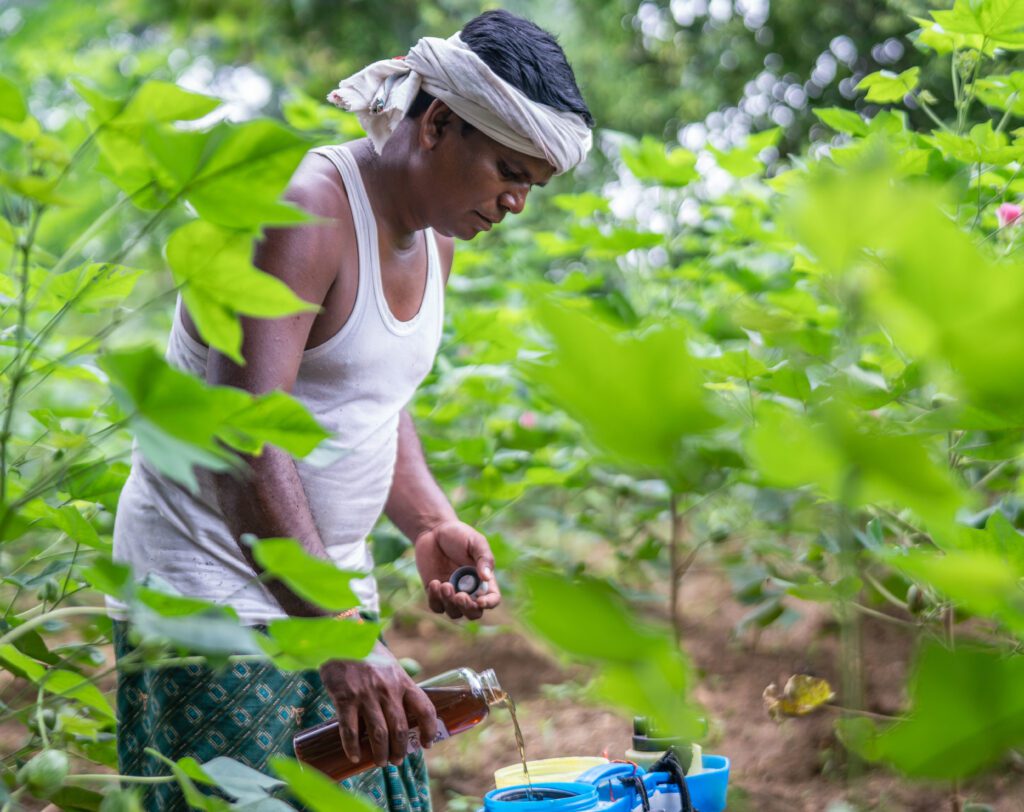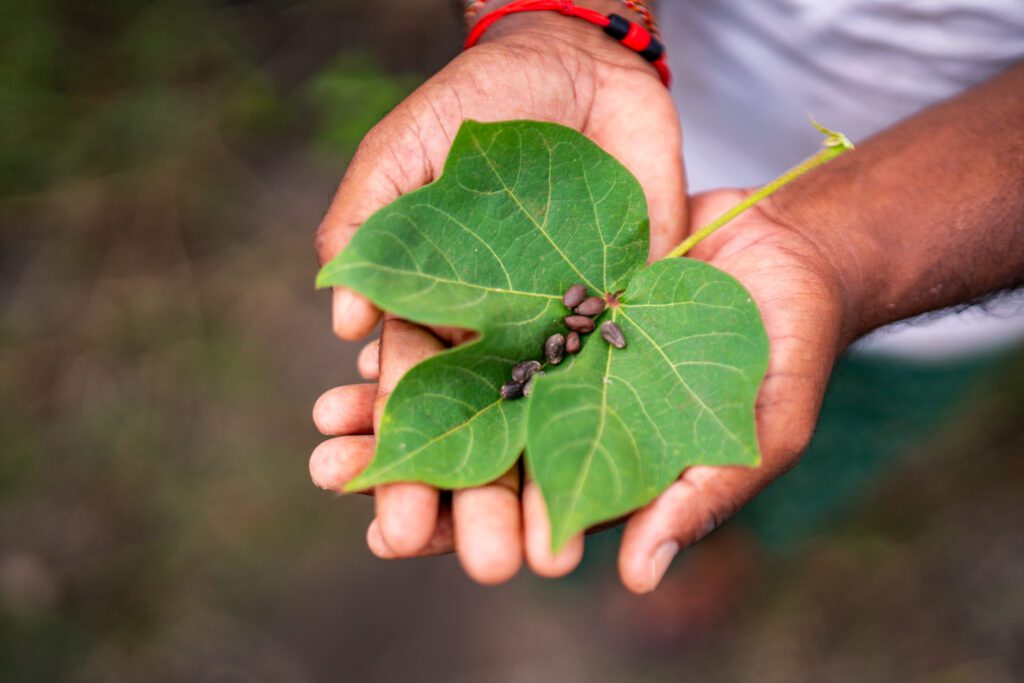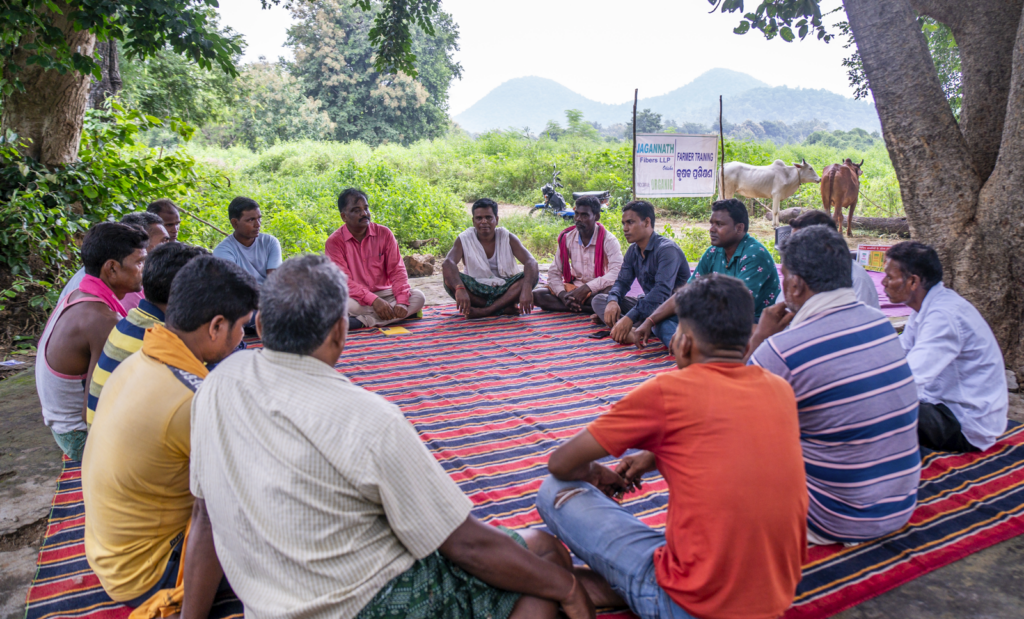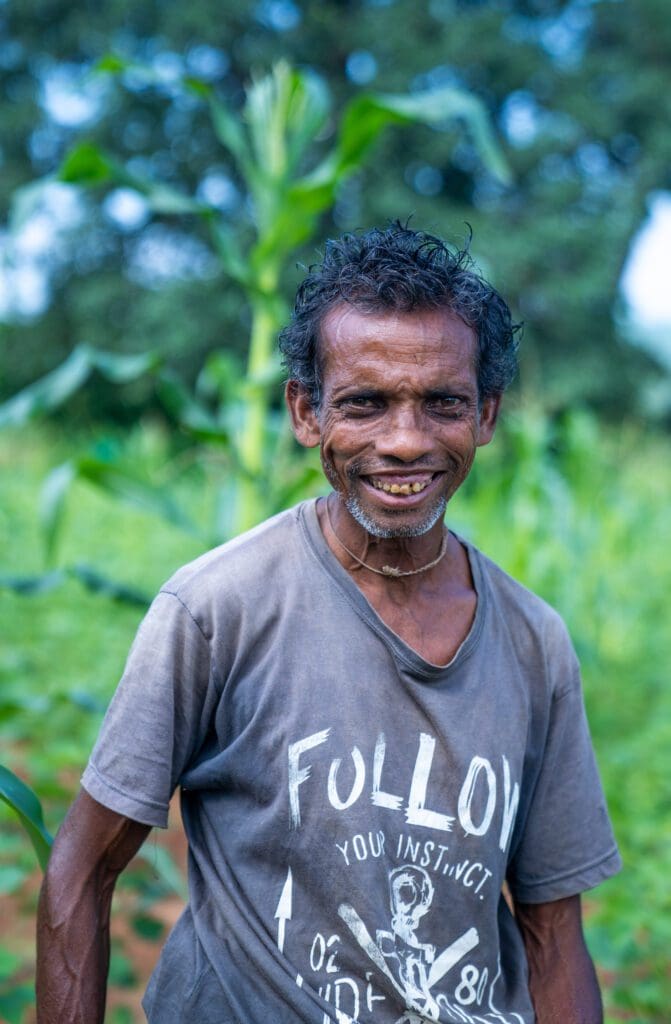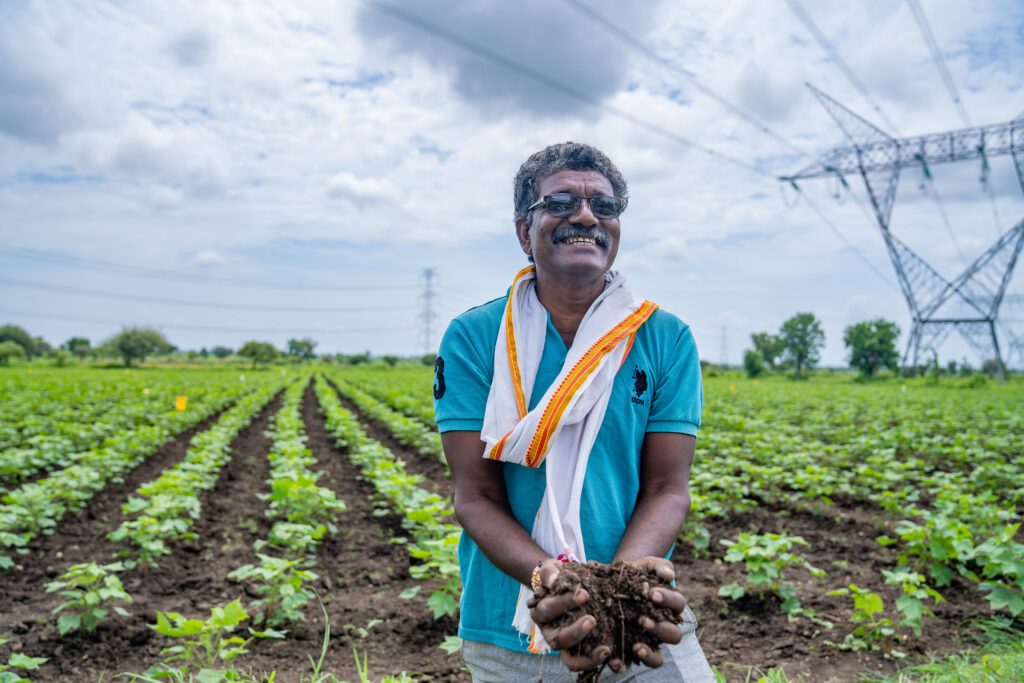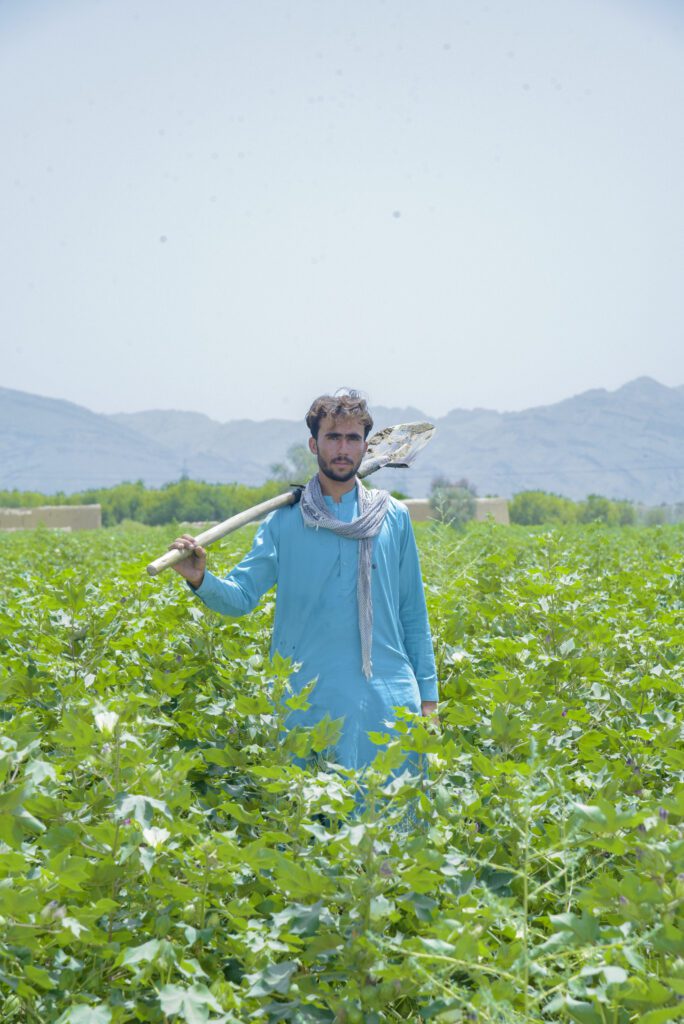 Pakistan
Pakistan Meet Labani Gahi, a 47-year-old organic cotton farmer from the Kalahandi District of Odisha, who has over 18 years of experience in the field of agriculture.
Labani’s day begins at the crack of dawn, as he wraps his traditional Indian white headgear, or “pagdi” which not only protects him from the scorching sun and dust in the fields, but also signifies the start of another day dedicated to the nurturing of his cotton crops. Labani finds purpose in his fields, where the seeds of organic farming take root.
For many years, Labani had been a conventional cotton farmer until considered transitioning to organic farming. Driven by a deep concern the harmful effects of chemical pesticides on soil health, Labani decided to take the leap. Little did he know that this choice would reshape his life.
With steadfast support from the OCA Farm Programme, Labani began his organic journey. He cultivated seven acres of cultivated land, allocating five of them to organic cotton. During the Kharif season, he grew rice on the remaining two acres, showcasing his adaptability and resourcefulness.
What is Kharif season?
Kharif season refers to the monsoon season in India, typically spanning from June to September. In organic cotton farming, the Kharif season is crucial as it coincides with the sowing and initial growth stages of cotton plants.
Organic cotton farmers need to carefully plan their planting schedule to take advantage of the monsoon rains for irrigation and ensure optimal growth of their cotton crops without relying on synthetic fertilisers or pesticides. During the Kharif season, organic farming practices focus on soil health, natural pest management, and sustainable irrigation methods to cultivate healthy cotton plants while preserving the environment.
With support from OCA and its partner on the ground, Labani diversified his income sources, cultivating crops like castor oil, maize, jowar, and various vegetables. This diversification boosted his income by an additional 20%, while enabling him to provide his family with healthy organic food straight from their own fields. He also successfully cultivated paddy, contributing 9% to his income. Moreover, he generated up to 16% of his income from other sources, primarily through the sale of milk from his livestock.
Labani credits the OCA Farm Programme for his success as an organic farmer. The programme provided pre-financed organic seeds, steady supply of crop seeds and bio-inputs through self-help groups.
Gahi’s commitment to organic farming, along with the support of OCA’s initiative to supply bio-inputs at scale to organic and in-conversion farmers, not only decreased his expenses but also improved the health of his soil, his family, and his crop yields. He stands firm on his resolve to continue with organic cotton farming, knowing that he’s not just cultivating cotton but also cultivating a better future.
In Labani’s success story, textiles Brands played a pivotal role as facilitators of market linkage and procurement. By joining OCA and its Farm Programme, Brands and Retailers empower organic farmers to access premium markets, ensuring a sustainable business case for organic farming.
Join us in our journey towards a more resilient and sustainable cotton supply chain.

